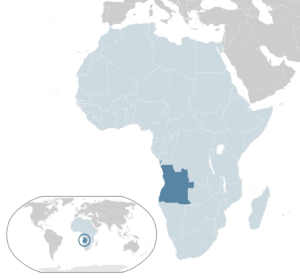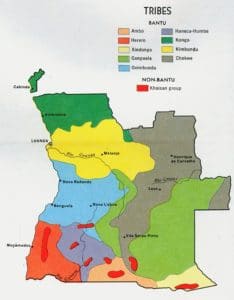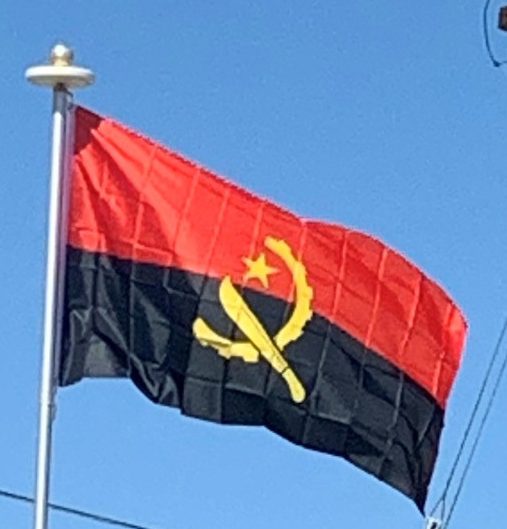Introduction:
Angola, officially the Republic of Angola, is a west-coast country of south–central Africa. It is the seventh-largest country in Africa, bordered by Namibia to the south, the Democratic Republic of the Congo to the north, Zambia to the east, and the Atlantic Ocean to the west. Angola has an exclave province, the province of Cabinda that borders the Republic of the Congo and the Democratic Republic of the Congo. The capital and largest city of Angola is Luanda.

Although inhabited since the Paleolithic Era, what is now Angola was molded by Portuguese colonization. It began with, and was for centuries limited to, coastal settlements and trading posts established starting in the 16th century. In the 19th century, European settlers slowly and hesitantly began to establish themselves in the interior. The Portuguese colony that became Angola did not have its present borders until the early 20th century because of resistance by groups such as the Cuamato, the Kwanyama and the Mbunda.
After a protracted anti-colonial struggle, independence was achieved in 1975 as the Marxist–Leninist People’s Republic of Angola, a one-party state supported by the Soviet Union and Cuba. The civil war between the ruling People’s Movement for the Liberation of Angola (MPLA) and the insurgent anti-communist National Union for the Total Independence of Angola (UNITA), supported by the United States and apartheid South Africa, lasted until 2002. The sovereign state has since become a relatively stable unitary, presidential constitutional republic.

Angola has vast mineral and petroleum reserves, and its economy is among the fastest-growing in the world, especially since the end of the civil war; however, the standard of living remains low for most of the population, and life expectancy in Angola is among the lowest in the world, while infant mortality is among the highest. Angola’s economic growth is highly uneven, with most of the nation’s wealth concentrated in a disproportionately small sector of the population.
Angola is a member state of the United Nations, OPEC, African Union, the Community of Portuguese Language Countries, and the Southern African Development Community. A highly multiethnic country, Angola’s 25.8 million people span tribal groups, customs, and traditions. Angolan culture reflects centuries of Portuguese rule, in the predominance of the Portuguese language and of the Catholic Church.
Origin of the Name:
The name Angola comes from the Portuguese colonial name Reino de Angola (Kingdom of Angola), which appeared as early as Dias de Novais‘s 1571 charter. The toponym was derived by the Portuguese from the title ngola held by the kings of Ndongo. Ndongo in the highlands, between the Kwanza and Lukala Rivers, was nominally a possession of the Kingdom of Kongo, but was seeking greater independence in the 16th century.
History:
Early Migrations and Political Units:
Modern Angola was populated predominantly by nomadic Khoi and San prior to the first Bantu migrations. The Khoi and San peoples were neither pastoralists nor cultivators, but hunter-gatherers. They were displaced by Bantu peoples arriving from the north, most of whom likely originated in what is today northwestern Nigeria and southern Niger. Bantu speakers introduced the cultivation of bananas and taro, as well as large cattle herds, to Angola’s central highlands and the Luanda plain. Hendese Bantu established a number of political entities; the best-known of these was the Kingdom of the Kongo, based in Angola, which extended northward to what is now the Democratic Republic of the Congo, the Republic of the Congo and Gabon. It established trade routes with other city-states and civilizations up and down the coast of southwestern and western Africa and even with Great Zimbabwe and the Mutapa Empire, although it engaged in little or no transoceanic trade. To its south lay the Kingdom of Ndongo, from which the area of the later Portuguese colony was sometimes known as Dongo.
